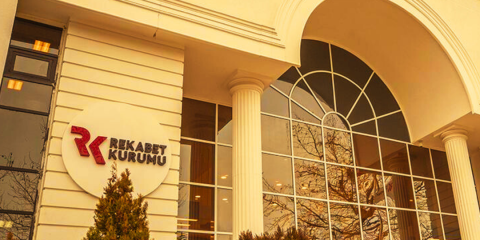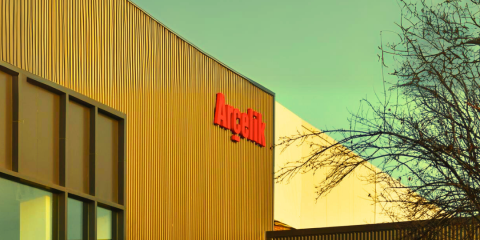Baran Baş
In recent years, the vast majority of undertakings that have faced an infringement allegation before the Turkish Competition Board (“TCB”) in relation to resale price maintenance (“RPM”) have almost no doubt that an administrative fine will be imposed on them, and therefore, they have resorted to conciliation with the TCB in order to at least reduce the administrative fine by 25%. However, Arçelik Pazarlama AŞ (“Arçelik“), which does not accept that it has been involved in RPM practices, has not preferred this path.
As a result of the complaints filed to the Turkish Competition Authority (“TCA“) against Arçelik with the allegations of preventing its authorised dealers from making sales via internet and interfering in resale prices, the TCB decided to launch an investigation under its decision dated 09.09.2021 and numbered 21-42/617-M.
A commitment process was initiated with respect to the allegation that authorised dealers were prevented from making sales via the internet. The first commitment text proposed by Arçelik was not accepted, but its second proposal was deemed sufficient by the TCB and it was decided to terminate the investigation on those allegations in question with commitment by rendering the revised commitments binding under the decision dated 08.09.2022 and numbered 22-41/580-240[1].
This information note addresses the TCB’s determinations and assessments regarding the resale price maintenance, which was investigated in the Arçelik case and ultimately led to the imposition of an administrative fine against the undertaking under the TCB’s decision dated 03.08.2023 and numbered 23-36/682-235[2].
As it is known, RPM is one of the most frequent types of infringements that the TCB has investigated and imposed administrative fines in recent years. In the current Arçelik case, the TCB, while explaining the theoretical framework regarding the RPM, emphasised that the act of interfering with the resale price is considered in the category of infringements that restrict competition[3] by object, by referring to both the legislation and its previous decisions. Arçelik stood against this approach in its defence; however, its objection was not accepted by the TCB, referring to its two recent communiqués[4] in which the RPM is defined as “clear/obvious and hardcore restriction”. In this respect, it would not be wrong to suggest that the TCB has completely abandoned the rule of reason in the RPM and now considers this type of infringement as a per se infringement.
The reasoned decision of the Arçelik case includes a total of 10 findings, some of which were e-mails and some of which were WhatsApp correspondence, obtained during the on-site inspections (or submitted in the annexes of the complaint applications), but only 3 of them were relied upon in attributing infringement to the undertaking. In almost all of the findings, Arçelik contacts expressed their discontent with the ‘low’ prices applied by various re-sellers, yet the TCB relied only on the findings containing indications that this discontent turned into interference with the relevant re-seller.
Although the undertaking claimed that such correspondence consisted solely of ‘isolated’ incidents and that they did not reflect Arçelik’s general policy, the TCB found that Arçelik was in a systematic behaviour and price intervention became a general policy of the undertaking, considering that the parties to the correspondence in the findings of infringement were high-level officials and that instructions were given to the regional managers/sales managers who were in direct contact with the resellers.
Consequently, the TCB concluded that Arçelik monitors the resale prices of the products supplied by it, and contacts the resellers selling products at low prices and makes them increase the price, thereby interfering with the prices charged by resellers operating in various sales channels and fixing the resale price.
Firmly refusing to engage in the object-effect debate, the TCB stated that, as in its previous decisions, it merely considers RPM as a mean of “raising low prices”, that this infringement violated the law by object, and that the act in question is a restriction of competition and therefore, the effects of the act in question will not exclude the act from being an infringement of competition, and for this reason, the undertaking’s defences cannot be accepted.
The TCB determined, according to its findings of infringement, that the infringement lasted less than one year, and concluded that no mitigating or aggravating circumstances were applicable when determining the rate of the administrative fine and consequently decided to impose an administrative fine of TRY 365,379,161.06 on Arçelik under its decision dated 03.08.2023 and numbered 23-36/682-235.
As with every TCB decision, the above decision is also subject to administrative judicial review and Arçelik has the right to file an annulment lawsuit against this decision of the TCB.
As Baş | Kaymaz Law Firm, we offer comprehensive consultancy and representation services in the field of competition law to both national and multinational clients with our specialized and experienced lawyers.
For further information, please contact Attorney Baran Baş here.
[1] For the reasoned decision of the case in question click here (Turkish).
[2] For reasoned decision of the case which is the subject of this information note click here (Turkish).
[3] The cited TCB decisions: Baymak decision dated 26.03.2020 and numbered 20-16/232-113; Doğuş Otomotiv decision dated 05.10.2001 and numbered 01-47/483-120; Anadolu Elektronik decision dated 23.06.2011 and numbered 11-39/838-262; Aral Oyun decision dated 07.11.2016 and numbered 16-37/628-279; Sony decision dated 22.11.2018 and numbered 18-44/703-345; Groupe SEB decision dated 04.03.03.2021 and numbered 21-11/154-63 numbered; Baymak decision dated 26.03.2020 and numbered 20-16/232-113; Philips decision dated 05.08.2021 and numbered 21-337/524-258 numbered; Arnica decision dated 30.09.2021 and numbered 21-46/671-335 ; Singer decision dated 30.09.2021 and numbered 21-46/672-336.
[4] The Communiqué No. 2021/2 on Commitments to be Submitted in Preliminary Investigations and Investigations Regarding Agreements, Concerted Practices and Decisions Restricting Competition and Abuse of Dominant Position and the Communiqué No. 2021/3 on Agreements, Concerted Practices and Decisions and Actions of Associations of Undertakings that Do Not Restrict Competition to a Significant Extent.


